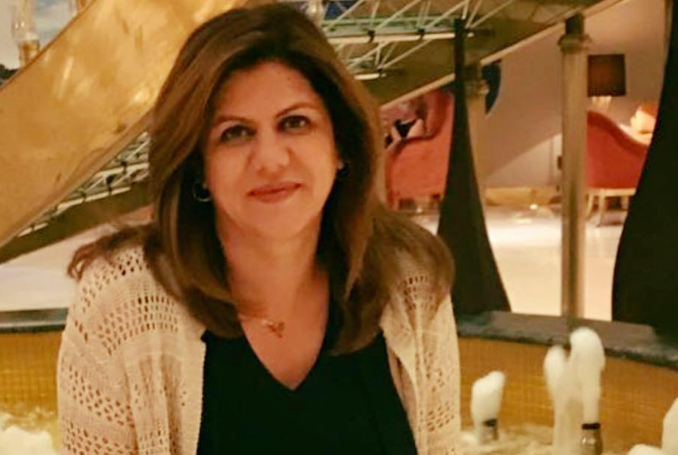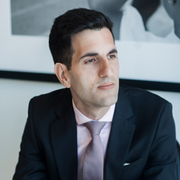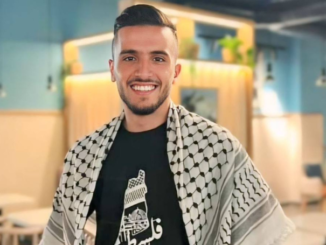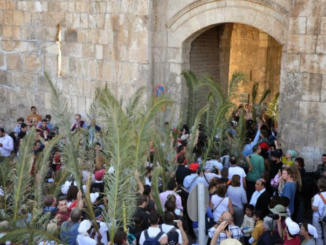
I was at the grocery store earlier today.
There was a woman with special needs who was being a “nuisance” to the staff. She seemed like she needed help but was intimidated by staff into leaving. Who appeared to be the manager told her they were calling the police. Without protest, she left the store. It was at once saddening and upsetting. It was no way to treat another human being, especially a vulnerable person.
I looked out the window of the store. She was trying to get the attention of a driver pulling out of his parking spot. He motioned get lost. Still, she pleaded that he stop, touching the hood of his car gently. He left as if she were now invisible.
I went outside to check on her. Asked if she was ok, something I could do.
“I forgive you,” she unexpectedly replied. It was the first time she’d ever seen me.
“Thank you,” I said. “Could I get you a sandwich from the store?”
“Yes please.”
When I returned inside the apparent manager told me “she always steals” and that if I get her the sandwich she’ll either “throw it away or sell it.” I said I’d take the chance.
She did neither. She asked me if I’d like to sit with her on a bench. I accepted the invitation. She ate silently.
It hit me then that we live in a terribly cruel society. That we don’t want to be “bothered” by the suffering of others. That such suffering is something others have to “figure out”, as it’s not “our problem.”
How did we get like this?
It’s this very same attitude that underlies Western indifference to Palestine. This includes Canadian Prime Minister Justin Trudeau’s failure to make any statement regarding the brutal killing of Palestinian journalist Shireen Abu Akleh—shot in the head by Israeli military forces. (At the time of writing this article there is neither a news release or statement made by the Prime Minister on Abu Akleh). It also includes today’s failure by the Canadian House of Commons to pass a motion condemning and calling for an independent investigation into the killing.
We Canadians enjoy internationally a reputation for being “kind”, “considerate”, “good.” We should be interrogating this. Our political leadership has shown a complete disregard for Abu Akleh who should still be alive. She did everything right—an exemplary journalist who covered the illegal occupation of Palestine for over 20 years—while Israel was doing everything wrong—murderously targeting her and countless other Palestinians so that the occupation could, despicably, continue as seamlessly as possible.
Given our reputation, one would expect that our leadership would collectively express, at the very least, deep dismay over this. Instead, they mostly opted to do nothing. To treat Akleh like the woman in the store. To ignore, indeed show contempt for, her very humanity.
Sitting with this, I’m disgusted to be Canadian.
Til more Canadians, including our leaders, become more caring and not indifferent to the suffering of Palestinians we cannot expect to see a mass movement, in solidarity with Palestine, to end Israeli apartheid. More journalists like Abu Akleh will be killed and at the ruthless hands of Israeli forces who see Palestinians as non-human—obstacles to the completion of the ethnic cleansing of Palestine. In principle, it is no different from the “final solution”–the monstrous and depraved end of the Holocaust. It is driven by a ghastly hatred.
Caring about Palestine, as so many are already doing internationally, requires that Canadians not see what’s happening to Palestinians under Israeli rule as “distant”, “far away”, a “foreign affair” that’s “none of our business.” This is exactly the kind of rhetoric that was used, I recall, during the Second Intifada (early 2000s) when several were trying to silence myself and fellow activists at the University of Toronto from speaking out against the occupation.
They were, in keeping with the selfish spirit of Western society, wanting us to shut up and focus on our own lives. And in that society, “our own lives” don’t extend to others, take place in community—among others locally and abroad. It refers to what advances our individual interests. You can accomplish a lot professionally that way but it doesn’t orient you towards humanity, to which we’re (willy-nilly) all connected. That’s why we feel guilt when we realize that there is suffering going on in the world but have turned away.
Prime Minister Trudeau made a recent statement for Israel’s Independence Day:
We condemn the recent spate of terror attacks targeting Israeli civilians these past weeks. There is no place for hate or terror of any kind. Today, we reiterate our commitment to a continued, prosperous, and valuable relationship between the people of Israel and Canada, as well as lasting peace in the Middle East.
This is by far not enough. We must go further. The Canadian government must, setting an example for the broader society, condemn Israel, not celebrate its independence and acknowledge how its founding in 1948 necessarily involved the devastation of Palestine—the Nakba that continues today. For our government to pretend, as it has all too long, that Israel fundamentally embodies virtuosity, such as democracy or Judaism, is not only a lie. It asks Canadians to see Israel as good while ignoring the violence it inflicts on Palestinians daily.
There are fewer greater ways that Canadians can dishonor the Palestinian people themselves. And just because our leaders do it doesn’t by any mean we must follow suit. We must, emulating the courage of Abu Akleh, instead tell our leaders no.
We care more about human life. We love Palestine.

– Paul Salvatori is a Toronto-based journalist, community worker and artist. Much of his work on Palestine involves public education, such as through his recently created interview series, “Palestine in Perspective” (The Dark Room Podcast), where he speaks with writers, scholars and activists. He contributed this article to The Palestine Chronicle.








